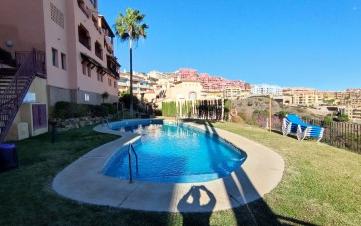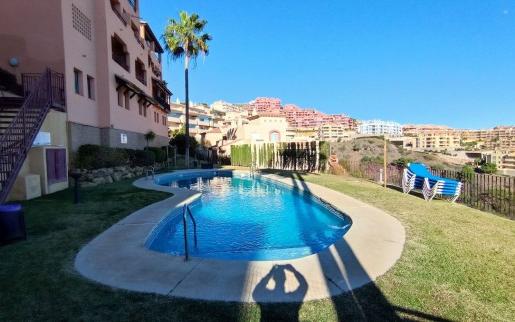
Spain has long been a popular destination for ex-pats, with up to 10% of the population being foreign residents.
Obviously, the Spanish language attracts many ex-pats from Latin America, but you will also find many Europeans attracted by the fantastic weather, improved lifestyle, and lower cost of living.
So what tips can we recommend for people moving to Spain?
1) Learn Spanish
It sounds obvious, but many people don´t put the effort in to learn Spanish. It´s important to have basic Spanish in order to cope with everyday living such as shopping, visiting the doctor, or dealing with household issues such as electricity readings. If you don´t speak the language, you can feel isolated, and locals will always see you as a tourist. Of course, many people rely on Spanish speakers who speak English to get by, but the longer you stay, the more important it is to speak Spanish. You will find Spanish documentation, and bureaucracy lengthy, and understanding these documents obviously is hugely beneficial. Finding a job becomes much easier as well when you speak fluent Spanish. So, the best advice I can offer you is to learn Spanish as soon as you move to Spain. If you join a Spanish school, you will meet many new friends as well.
2) Embrace Outdoor Living
Probably one of the reasons you moved to Spain, was the beautiful weather the country has – so make the most of it! You will find that you make friends very quickly by taking part in activities such as Golf, Cycling, Sailing, or Walking! You will also find that you become much fitter at the same time!!
You can do so many activities in Spain, and it might be the time to do something new, such as Scuba- diving, or water skiing. You will meet many Spaniards, as well as fellow expats!
3) Enjoy A Relaxed Pace Of Life
Maybe it´s the intense heat that makes people more leisurely, but some people joke that only football matches start on time!! It´s not true of course, Spain is changing, and catching up with the rest of Europe. Trains, for example, are very punctual, and the AVE bullet train is extremely efficient at linking Spain´s major cities.
Siesta is still a large part of Spanish living – and you will understand why in the hot summer afternoons - it is simply a necessity to shelter from the sun. You will find that large supermarkets remain open. You may ask “why do we need siestas when we have air conditioning?” but it is part of the Spanish lifestyle, and should be respected.
You can generally take an estimate of when something will be done with a pinch of salt, and be pleasantly surprised when something is done on time; but again, this is part of the relaxed Spanish lifestyle that you have decided to join. Don´t compare Spain to your old country all the time - each has benefits and disadvantages – just go with it!
4) Travel
Spain is such a varied country, and varies greatly from region to region; not only geographically, but also its climate, language, music, architecture, history, and outlook of the people. You can enjoy the passion and heat of Andalucia, or the craggy, coastline of the north that inspired many of Dali´s great paintings. You can enjoy the sun and heat of Granada, and within half an hour be in its famous Nevada, where many people go skiing. Spain really has so much to offer, and so you should really travel to see as much as possible.
5) Experience Spanish Cuisine
When people think of great culinary nations, many overlook Spain, but this is unfair. There are so many regional delicacies, that really need to be experienced! Of course, Spain is famous for its TAPAS – mini dishes traditionally eaten with a beer, but there is so much more to Spanish cuisine than that. There are fantastic wine producing regions, that are rivalling traditional grapes of France & Italy. The quality of produce in Spain, such as the diversity of its fish and vegetables, makes Spain a more and more exciting culinary destination. In fact, some of the world´s most renowned Michelin star chefs originate in Spain.
6) Support A Local Football Team
Football is hugely popular in Spain, in fact it is a passion for many, with some of the greatest players in football playing in the top league – La Liga. It is common to see whole families in the stands at Spanish football matches, which gives them a communal spirit. There is a real party atmosphere at games, and are well worth experiencing. You will also find that many teams – for example Málaga - have groups of ex-pats that support them, so it is a great way to meet Spaniards & people from your country of origin. Football is always a great way to start a conversation!!
7) Go To Local Fiestas
Local fiestas occur in virtually every village, town and city – the Spanish love to party!! These Fiestas take great importance in the communal calendar, and a lot of planning and organisation goes into making costumes, and organising processions. Attending these events gives you a great opportunity to meet people, and get a real understanding of what makes your area special.
8) Watch Spanish TV
Sometimes the adverts can be longer than the programmes! But catching some Spanish TV, allows you to listen to different dialects, and further your understanding of Spanish. It can also give you a good idea of the Spanish mentality, and what their sense of humour is like – every nation has a different sense of humour!
9) Understand Social Norms
The British can be very different to the Spanish – we make a lot of being polite, and having manners and order. There is less importance placed on these characteristics! That´s just the way it is, so it´s easier to get used to it, and understand that is how many people behave in Spain. Don´t bother waiting for a polite wave if you give way to a driver! The Spanish roads are a dog eat dog environment! Generally, the Spanish are more direct in everything they do.
10) Drive With Caution
Spain has almost DOUBLE the number of traffic fatalities than the UK – there are several reasons for this. In my area of Andalucia, you can see why some roads are so dangerous, and that is because there is a deadly mix of inexperienced tourists, badly designed roads, and a different attitude to drink driving. These factors are improving, but you should take care, and don’t expect the same standards you are used to. Defensive driving is the key.
 Spain has long been a popular destination for ex-pats, with up to 10% of the population being foreign residents.
Obviously, the Spanish language attracts many ex-pats from Latin America, but you will also find many Europeans attracted by the fantastic weather, improved lifestyle, and lower cost of living.
Spain has long been a popular destination for ex-pats, with up to 10% of the population being foreign residents.
Obviously, the Spanish language attracts many ex-pats from Latin America, but you will also find many Europeans attracted by the fantastic weather, improved lifestyle, and lower cost of living.

 English
English Español
Español Deutsch
Deutsch Français
Français Svenska
Svenska Nederlands
Nederlands Italiano
Italiano Norsk
Norsk Русский
Русский



































